With the rise of online reviews, social media interactions, and digital feedback exerting a profound influence on consumer behavior, effectively managing your online reputation has become essential for businesses. In fact, recent surveys reveal that 71% of consumers are more inclined to purchase products and services based on online referrals.
The truth is, that online reputation management (ORM) for small businesses can be trickier than for corporations. It demands specific and targeted parameters to reach your ideal customers effectively. Sounds challenging? This guide offers key strategies to manage and boost your business's ORM effectively.
What is the definition of online reputation management for small business?
Online Reputation Management (ORM) refers to actions taken by businesses to shape positive public opinion about their company and its products or services. With the rise of the internet, ORM is now considered one of the most important marketing aspects of businesses across industries. Not only does it achieve a better conversion rate, but it also does so cost-efficiently. According to research, reaching 2000 consumers with traditional advertising can cost $900, while it only costs $75 for digital advertising.
A significant portion of digital advertising focuses on search optimization, which includes online reputation management. The strategy is so lucrative that the global Online Reputation Management market is projected to expand at a CAGR of 6.7%, reaching USD 1665.35 million by 2028. To learn more about online reputation management, read our article titled "Online Reputation Management - All You Need to Know."
What are the key aspects of a good online reputation for small business?
ORM encompasses several key elements that collectively contribute to shaping the online reputation of a business:
a. High star rating
A higher star rating indicates positive customer experiences and can lead to increased trust and credibility among potential customers. In fact, for Tripadvisor alone, having Tripadvisor badges can significantly increase your booking rate.
b. Stellar customer reviews
Positive reviews not only contribute to a higher star rating but also serve as valuable social proof for prospective customers. Conversely, negative reviews can tarnish a business's reputation if not addressed promptly and effectively.
c. High visibility in filtered searches
Businesses with higher star ratings are more likely to appear at the top of search results, increasing their exposure to potential customers. For instance, in Google alone, the local pack results generate a whopping 80% of conversions within a day.
d. 100% response rate to customer feedback
How a business responds to customer feedback, both positive and negative, is another critical aspect of ORM. This is especially true for the hospitality industry, as 89% of travelers felt that a thoughtful response to a bad review enhanced their opinion of the company. Prompt and professional responses to reviews demonstrate a commitment to customer satisfaction and can help mitigate the impact of negative feedback.

To learn more about online review metrics and the importance of customer reviews, read our article Understanding the ROI of Online Review Ratings: Metrics, KPIs, and More
What is the importance of online reputation management for small business?
Here are the main benefits of good online reputation management:
a. Driving revenue growth
Beyond just a numerical score, star ratings wield immense power in attracting customers. A stellar rating of 4.2 or higher can significantly enhance visibility, drawing a steady stream of customers to your doorstep. For instance, a 4.5-rated Italian restaurant is likely to draw many more customers than a nearby competitor with a 3.5 rating.
b. Fostering customer loyalty
Sustaining a positive reputation cultivates trust and loyalty among existing customers. When patrons consistently encounter favorable experiences and glowing reviews, they're more inclined to become loyal advocates, returning time and again to support your business.
c. Cultivating trust and confidence
A positive reputation instills trust and confidence in the local community, leading to increased credibility and a favorable perception of the business. This is significantly essential for small businesses, as word-of-mouth advertising drives a whopping $6T of annual consumer spending.
d. Safeguarding brand integrity
Effective reputation management serves as a protective shield against the impact of negative publicity. This is essential for small businesses, as recent surveys suggest that only 38% of consumers post about positive experiences, 13% are neutral, and 49% focus on their poor experiences.
e. Better opportunity for scalability
Preventing a negative reputation helps businesses avoid missing out on potential opportunities, such as partnerships, collaborations, or endorsements, which are all essential for scalability.
What are online reputation management tasks?
Truth is, the average reaping the benefits of your ORM strategies can take anywhere from a month to a year or more. This fully depends on the nature of the business and its goals. Here are the tasks included in ORM:
a. Learning from customer feedback
Learn from customer feedback to optimize the guest experience and continuously improve your offerings. By analyzing feedback, you can identify areas for enhancement and ensure that any negative feedback is addressed, preventing recurring issues and fostering more positive 5-star reviews in the future.
b. Responding to customer reviews
Engage with customers who leave online reviews, whether positive or negative, to demonstrate responsiveness and promptly address their concerns. Research shows that hotels that respond to reviews receive 12% more feedback, leading to an average rating increase of 0.12 stars.
{{blog-cta="/features/product-updates"}}
c. Reacting to recurring complaints
Address recurring complaints promptly by taking actionable steps to enhance guest satisfaction. For example, if guests consistently report that the pool water is too cold, consider investing in higher energy costs to adjust the pool temperature, ensuring a more enjoyable experience for your guests.
d. Mitigating the impact of negative publicity
Implementing measures to minimize the repercussions of negative news, reviews, or comments by addressing issues, providing explanations, or counteracting misinformation. While this maybe tricky, our article Negative Review Response Examples: Don't Let Bad Reviews Ruin Your Business discusses how you can handle negative reviews.
e. Removing inappropriate reviews
Online review platforms are becoming more vigilant with people’s online reviews. In fact, Tripadvisor alone deletes an average of 2 million reviews in a year. Learn how to identify and flag reviews that violate platform guidelines, boosting your overall rating by reducing negative feedback. To learn more about this, read our article Learn How to Remove Google Reviews and What To Do If You Can't.
f. Collecting 5-star reviews actively
Discover effective strategies to encourage satisfied customers to leave glowing reviews, leading to an increase in positive feedback and an improved overall rating. For instance, 16% of consumers worldwide say they review businesses if they receive a well-crafted email request. For more strategies, read Learn How to Generate and Share a Google Reviews Link.

What are the expert tips and strategies for optimal online reputation management for small business?
Here are some strategies for implementing an effective ORM process:
a. Manage your online reputation through an ORM software
Enhance your online reputation by leveraging dedicated Online Reputation Management (ORM) software to streamline monitoring and management tasks. These tools facilitate the gathering of more 5-star reviews, enable prompt responses to reviews, aid in handling negative feedback effectively, and provide valuable insights for continuous improvement. Find out the right ORM solution for your current process, read our article Review Management Software: Ensuring Online Reputation the Smart Way.
b. Improve your online reputation management based on data
Base your ORM strategies on data analysis, including customer reviews, star ratings, and sentiment analysis. Use these insights to identify improvement areas, track strategy impact, and make informed adjustments for optimal reputation management.
c. Monitor online reviews regularly
Stay informed about customer sentiment and business perception by regularly monitoring online reviews. Promptly address feedback, track emerging trends, and proactively manage your online reputation to maintain a positive brand image.
d. Engage with customers and address feedback promptly
Respond to reviews and address inquiries or concerns in a timely manner. By demonstrating responsiveness and commitment to customer service, you can mitigate the impact of negative feedback and foster positive relationships with your audience.

How to implement online reputation management for small business?
Understanding the unique challenges and strategies for small businesses is crucial for effective ORM.
Why do small businesses need reputation management?
For small businesses, reputation management is not just an option; it's a necessity. In today's digital age, where online reviews play a significant role in consumer decision, small businesses must actively manage their online presence. Remarkably, 71% of SMEs use digital strategies to market themselves, with 52% posting at least daily. This highlights the importance of consistently showcasing reliability and commitment to customer satisfaction, which can attract more local patrons.
Moreover, effective reputation management allows small businesses to differentiate themselves from competitors by establishing trustworthiness and reliability in the eyes of consumers, ultimately contributing to long-term success in the digital marketplace.

Building an effective online reputation management for small business: action plan
Here’s how to build an effective online reputation management action plan for your small business:
1. Define goals
Determine what you want to achieve, whether it’s improving your star ratings, increasing customer trust, or enhancing overall brand perception. Having specific objectives helps you focus your efforts and measure success accurately.
Expert Tip: Regularly review and adjust your goals to align with your evolving business needs and market trends. Start by conducting a SWOT analysis (Strengths, Weaknesses, Opportunities, Threats) to understand your current position.
2. Strategy development
Develop a comprehensive strategy tailored to your business needs. This involves identifying the key platforms and tools most relevant to your industry, such as Google My Business for local businesses or online channels. Your strategy should outline the steps to improve your online presence, manage reviews, and engage with customers.
Expert Tip: Incorporate a mix of proactive and reactive measures in your strategy to stay ahead of potential issues. Train your team on the best practices for engaging with customers online and responding to feedback through an ORM solution.
3. Key Performance Indicators (KPIs)
Common KPIs include review ratings, the number of reviews, customer engagement, and customer sentiment analysis. Regularly monitoring these metrics helps you understand the impact of your ORM activities and make data-driven decisions.
Expert Tip: Use automated tools to streamline KPI tracking and generate insightful reports. Choose ORM tools that provide comprehensive analytics and reporting features. Furthermore, set up automated alerts for significant changes in KPIs to address issues promptly.
4. Implement contingency measures
Prepare for potential crises by developing protocols for responding to negative feedback and managing PR issues. This includes having a crisis communication plan, training staff on appropriate response techniques, and monitoring online mentions continuously. Quick and professional handling of negative situations can mitigate damage and even turn dissatisfied customers into loyal advocates.
Expert Tip: Ensure each reply is personalized to show genuine concern and commitment to resolving problems. Use sentiment analysis tools to detect negative mentions early and respond quickly and effectively.
5. Finding the right ORM solution
Selecting the right ORM software or service is crucial for effective reputation management. Look for solutions that fit your business size and industry, offering comprehensive monitoring, reporting capabilities, and user-friendly interfaces. The right tool will help you stay on top of your online presence and respond swiftly to any issues.
Expert Tip: Consider solutions that offer customizable features and scalable options to grow with your business needs. Research and compare different ORM solutions, focusing on features like real-time monitoring, sentiment analysis, and AI review response.
Online reputation management for small businesses: examples
Implementing effective online reputation management for small businesses can be challenging but certainly achievable. Here are some examples of small businesses excelling in this area:
1. Optimized Google Business listings
Local cafes like Bookends Cafe and Cortado Mediterranean Cafe top the search results for "best cafe in Iowa," outperforming major chains like Starbucks and Panera Bread. Their secret? Fully optimized Google Business listings with complete, accurate information and relevant keywords.

2. Responding to online reviews
Despite not having the highest star rating or the most reviews, Bookends Cafe claims the top spot in search results. Their success lies in diligently responding to online reviews, showing they value customer feedback and actively engage with their audience.

Start developing an online business reputation with MARA
Responding to online reviews can be a daunting task, especially for small businesses, but it doesn't have to be with our AI Review Assistant of MARA. This intuitive tool is designed to ease your Online Reputation Management process, making it more efficient, personalized, and time-saving. It offers the best and most personalized AI for responding to and analyzing your guest reviews.
Easy review monitoring with intuitive Review Inbox
One of the key features of this tool is the Review Inbox. Your review inbox makes responding to reviews as simple as hitting "Generate reply" and clicking "Send". The Review Inbox connects to multiple review sources, including Google, Booking.com, and Tripadvisor, giving you a panoramic view of all your reviews. And you can even configure review response automation: Why not allow MARA to automatically respond to simple reviews, like 5-star Google reviews with no text, ensuring you never miss a review? Daily notifications about new reviews keep you updated and in control.
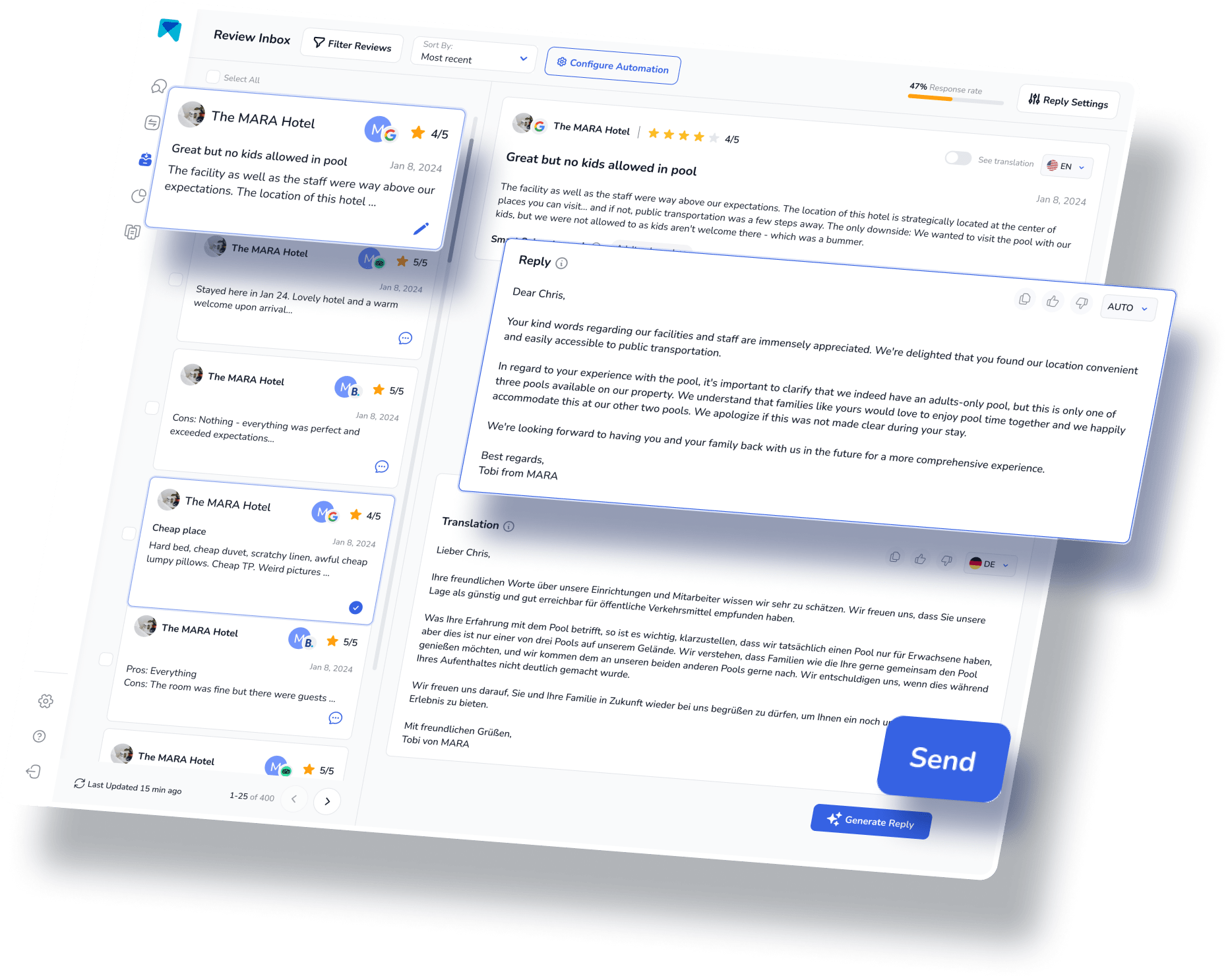
Data-based planning through Review Analytics
To help you understand and analyze the multitude of reviews, the Review Assistant also incorporates Review Analytics. This provides actionable, easy-to-understand insights that are tailored exclusively to your business. With MARA, you can quickly get the gist of all your reviews without needing to read each one. The analysis is so detailed that you can find out about specific issues like "water in the pool is too cold" or "lack of vegan breakfast option”. These insights help optimize guest experience without requiring you to be a data expert.

The most personal response AI
MARA's AI isn't just about efficiency; it's about personalization too. The Brand Voice feature allows the AI to adapt to your tone, making sure your responses sound authentically you. Plus, with Smart Snippets, you can "teach" the AI how to respond to recurring praises or complaints. Your AI then incorporates this information into its responses, but always with different words, providing more personalized, relevant replies.
This review response assistant has quickly become a game-changer for over 2000 customers. Its promising capacity to elevate your overall rating, amplify response rates, glean insights from customer feedback and economize both time and money, is the reason behind its growing popularity.
Final Thought
Effective online reputation management is essential for small businesses navigating the digital marketplace. By understanding the significance of ORM, implementing expert strategies, and tailoring action plans to specific business needs, small businesses can cultivate a positive online reputation that attracts customers and drives growth. Embracing ORM not only safeguards against potential crises but also fosters trust and credibility in the digital age. With the right tools and approaches, managing online reviews can be streamlined, personalized, and insightful, leading to enhanced brand visibility and customer satisfaction.
So, why hesitate? Try our AI Review Assistant, MARA, today for free and take control of your online reputation management journey.
This post is part of our hero content series on "Online Reputation Management for Hotels".
Frequently Asked Questions:
A business can manage its online reputation by utilizing dedicated Online Reputation Management (ORM) software, actively monitoring online reviews and social media mentions, promptly responding to feedback, and continuously optimizing its online presence.
Online reputation management is beneficial for businesses as it helps build trust with customers, attracts new clients, fosters a positive professional image, and ultimately drives revenue growth.
The four tips to manage online reputation easily are: optimize listings, collect online reviews, respond to online reviews, and run sentiment analysis to extract valuable data.
Strategies used in online reputation management include monitoring online mentions, responding to customer feedback, optimizing search engine results, and implementing contingency measures for crisis management.
The best practice for reputation management involves maintaining an active and engaging online presence, promptly addressing customer feedback, monitoring online mentions regularly, and leveraging data-driven insights to make informed decisions.



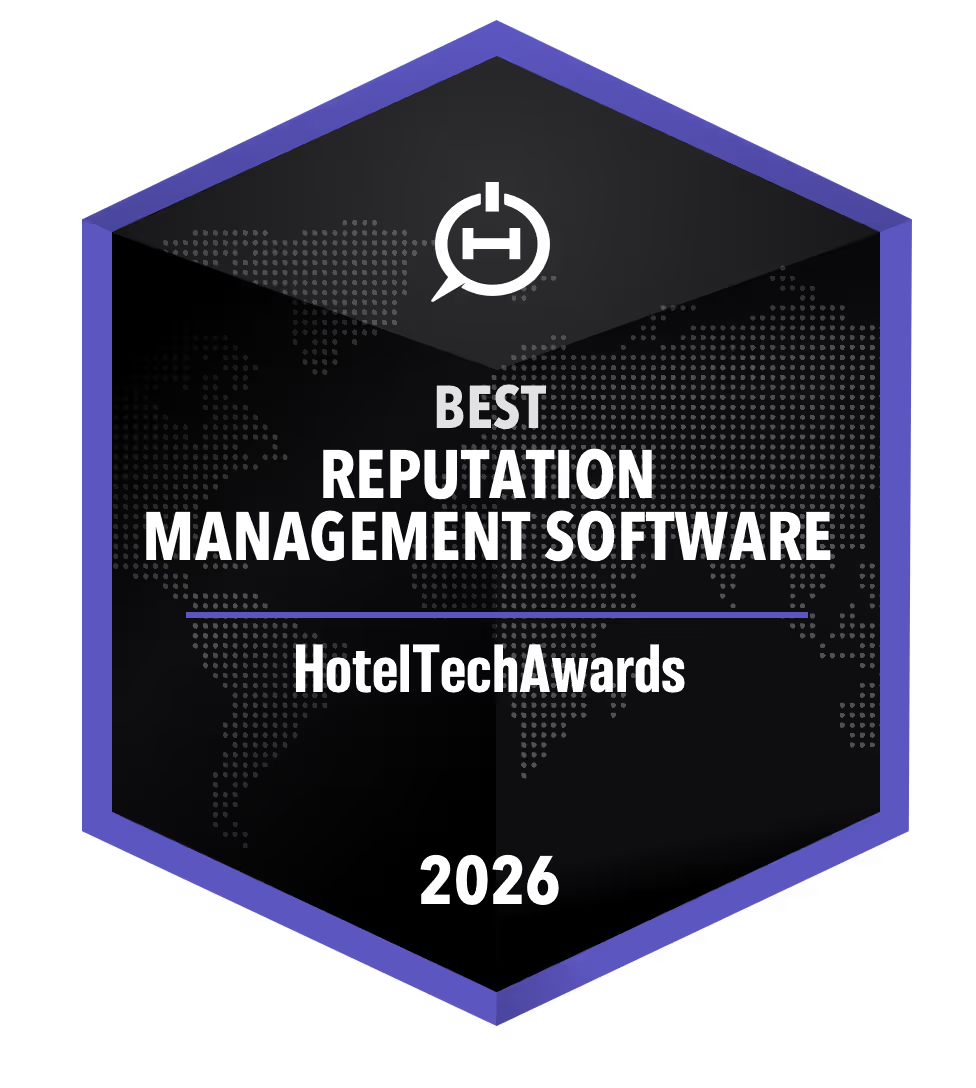

































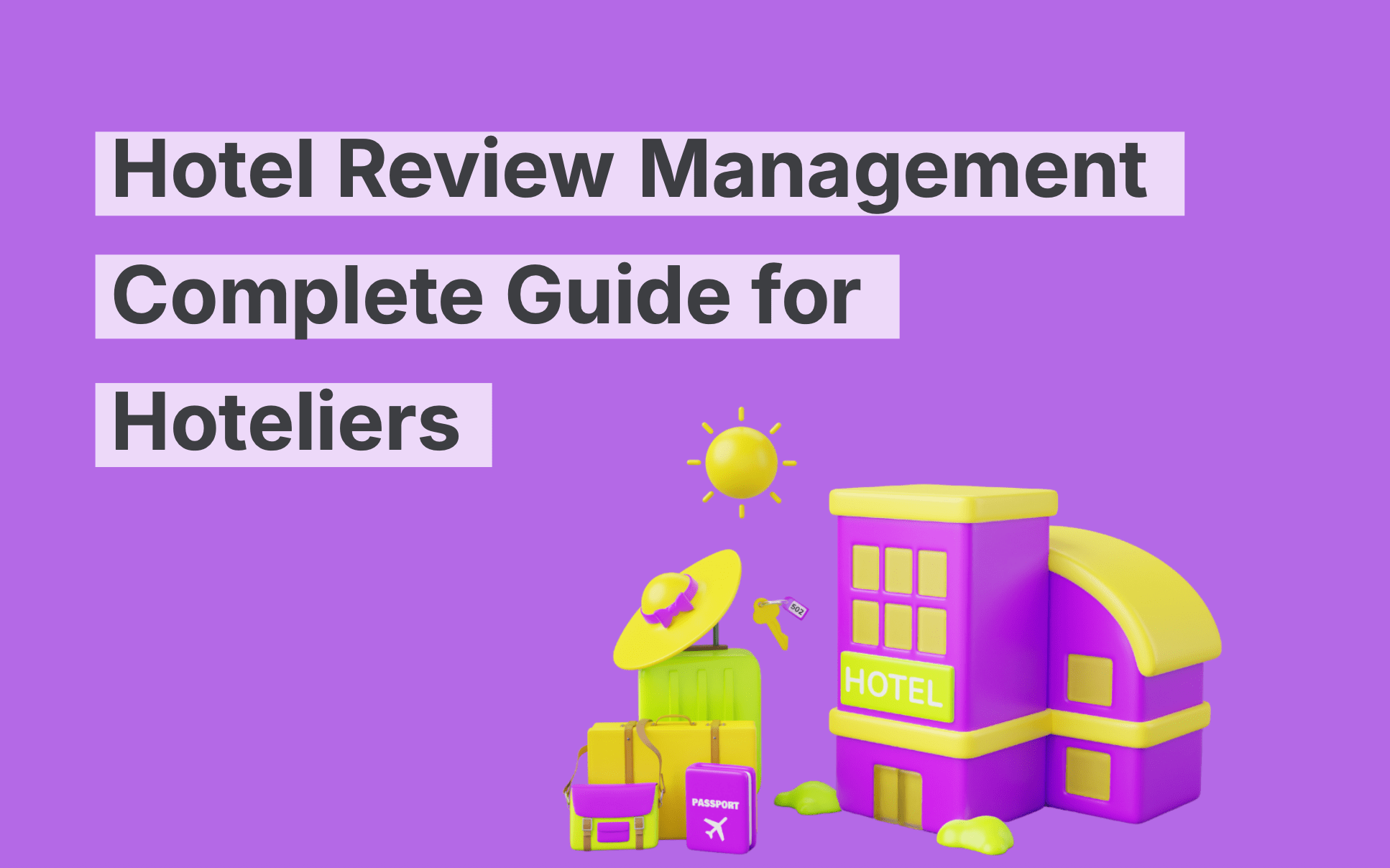
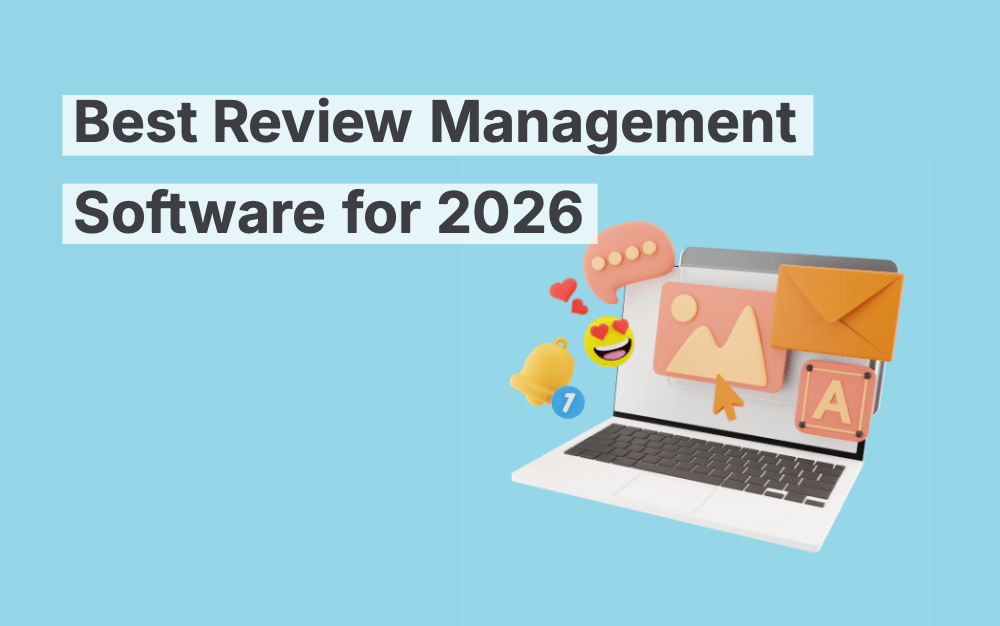
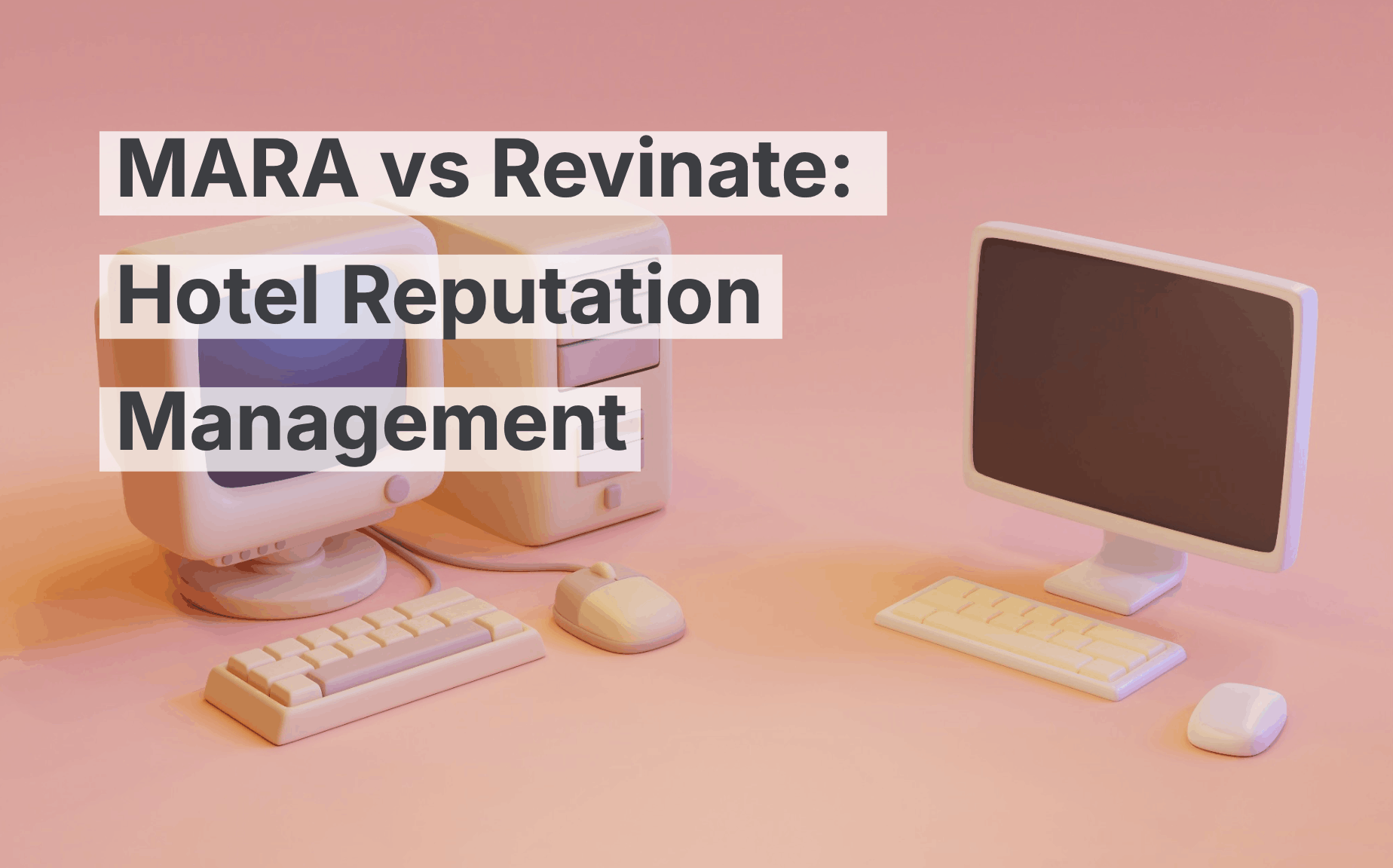
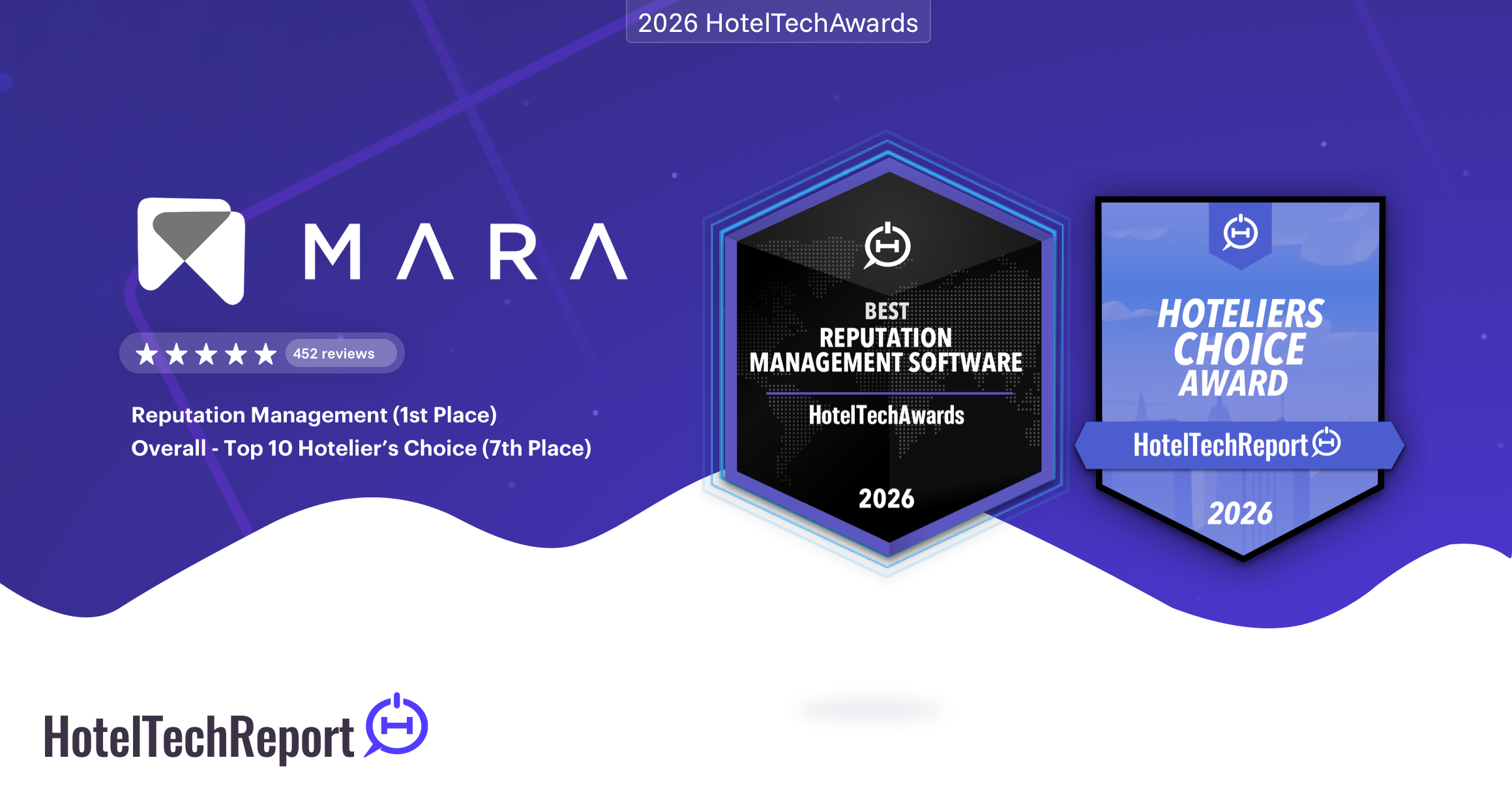





-min.avif)
